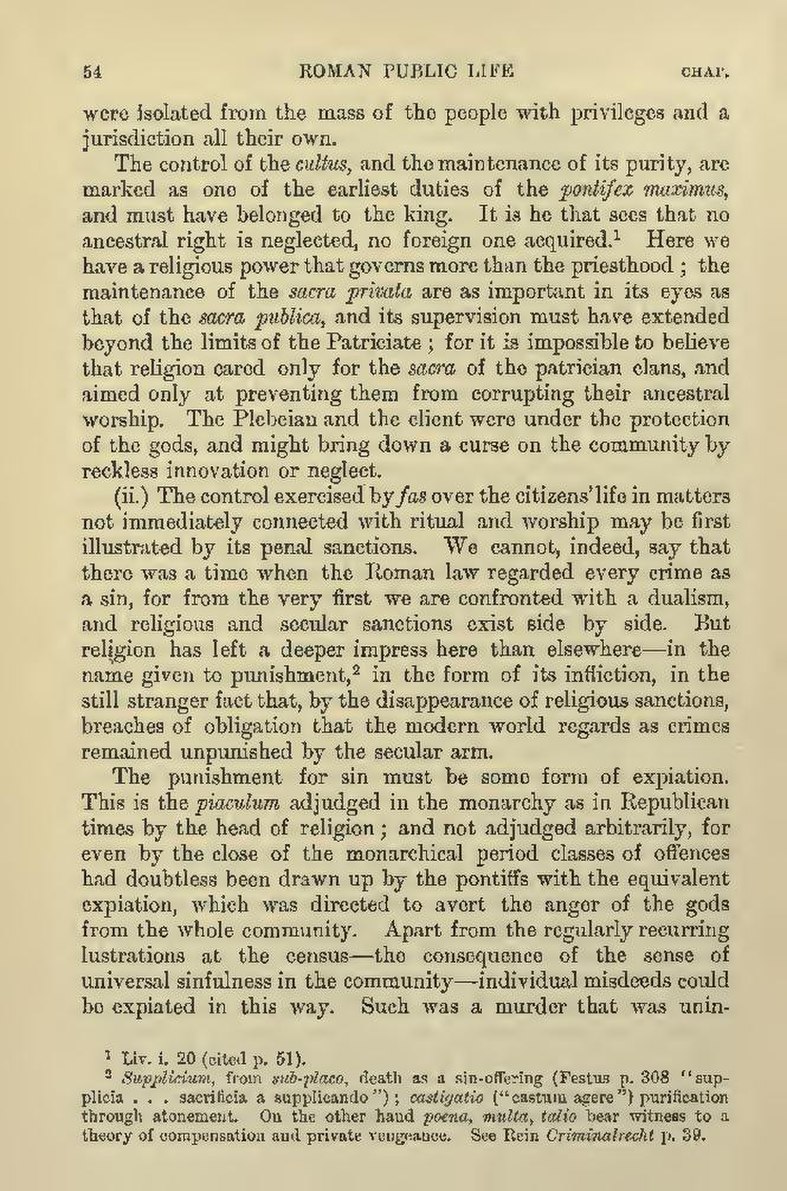were isolated from the mass of the people with privileges and a jurisdiction all their own.
The control of the cultus, and the maintenance of its purity, are marked as one of the earliest duties of the pontifex maximus, and must have belonged to the king. It is he that sees that no ancestral right is neglected, no foreign one acquired.[1] Here we have a religious power that governs more than the priesthood; the maintenance of the sacra privata are as important in its eyes as that of the sacra publica, and its supervision must have extended beyond the limits of the Patriciate; for it is impossible to believe that religion cared only for the sacra of the patrician clans, and aimed only at preventing them from corrupting their ancestral worship. The Plebeian and the client were under the protection of the gods, and might bring down a curse on the community by reckless innovation or neglect.
(ii.) The control exercised by fas over the citizens' life in matters not immediately connected with ritual and worship may be first illustrated by its penal sanctions. We cannot, indeed, say that there was a time when the Roman law regarded every crime as a sin, for from the very first we are confronted with a dualism, and religious and secular sanctions exist side by side. But religion has left a deeper impress here than elsewhere—in the name given to punishment,[2] in the form of its infliction, in the still stranger fact that, by the disappearance of religious sanctions, breaches of obligation that the modern world regards as crimes remained unpunished by the secular arm.
The punishment for sin must be some form of expiation. This is the piaculum adjudged in the monarchy as in Republican times by the head of religion; and not adjudged arbitrarily, for even by the close of the monarchical period classes of offences had doubtless been drawn up by the pontiffs with the equivalent expiation, which was directed to avert the anger of the gods from the whole community. Apart from the regularly recurring lustrations at the census—the consequence of the sense of universal sinfulness in the community—individual misdeeds could be expiated in this way. Such was a murder that was unin-*
- ↑ Liv. i. 20 (cited p. 51).
- ↑ Supplicium, from sub-placo, death as a sin-offering (Festus p. 308 "supplicia . . . sacrificia a supplicando"); castigatio ("castum agere") purification through atonement. On the other hand poena, multa, talio bear witness to a theory of compensation and private vengeance. See Rein Criminalrecht p. 39.
